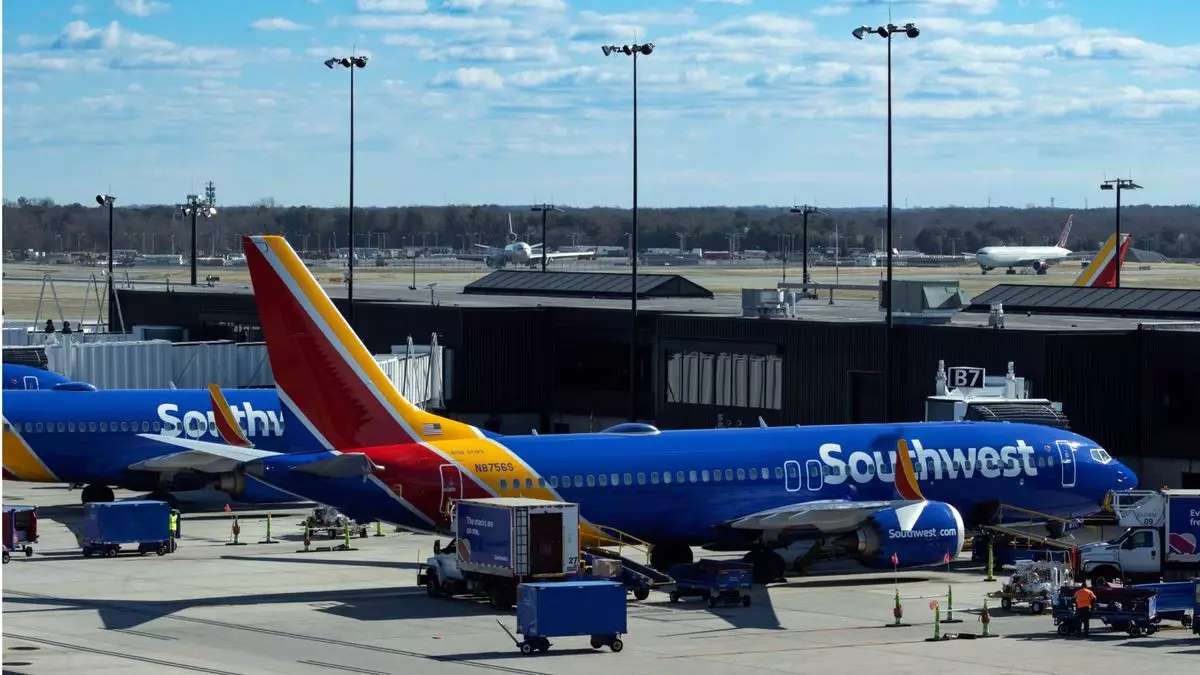In recent years, the aviation industry has witnessed an increasing rate of engagement from activist investors, companies that acquire significant stakes to effect change within the corporate structure and strategy of firms in which they invest. One impactful player in this realm has been Elliott Investment Management, which in a five-month engagement, attempted to steer Southwest Airlines towards what it deemed more effective governance and operational practices. While Elliott’s intervention led to the restructuring of the airline’s board, a deeper analysis reveals that the firm may have left significant expectations unfulfilled.
Elliott Investment Management owned an 11% stake in Southwest Airlines and initiated a proxy battle to gain control over the board. However, despite its efforts resulting in a reshaped board, the outcomes were not as transformative as one might expect. Analysts noted that Southwest’s strategic plans seemed to resonate more with what was already in action prior to Elliott’s involvement. Bob Mann, an analyst with RW Mann and Co., characterized the changes as largely superficial, suggesting that the airline’s strategic direction would have been pursued even in the absence of Elliott’s activism. This raises questions about the efficacy of activist investors and the actual influence they wield in corporate governance.
Furthermore, Elliott’s initiative to oust CEO Bob Jordan was unsuccessful, despite the newly constituted board likely providing closer scrutiny of his performance. This ongoing oversight could create an atmosphere of pressure where Jordan must continually demonstrate the capability to enact the ambitious goals laid out in their three-year plan for financial recovery. As noted by Brad Beakley, CEO of Hospitio, while Jordan may feel some relief with the newfound board support, he must deliver on his commitments to avoid scrutiny.
The deal reached by Elliott and Southwest did indeed prompt significant board changes; five members from Elliott’s suggested slate joined the board following the cessation of the proxy fight. In a notable development, longtime board chairman Gary Kelly agreed to resign earlier than planned, paving the way for new perspectives. However, these changes also underscore a more systemic issue: the composition of the board continues to skew towards individuals connected to the existing leadership, which questions the degree of transformative potential newly appointed members can actually offer.
There are now four people on the board with prior experience in leading other airlines. While this infusion of experience could theoretically provide the airline with the insights needed for better governance and strategic implementation, the extent to which this diversity in leadership can disrupt entrenched practices remains to be seen.
Southwest Airlines announced ambitious plans intended to generate $4 billion in incremental revenue and achieve a 10% profit margin by 2027—proposals that many analysts argue are merely extensions of existing strategies rather than groundbreaking innovations. For instance, the introduction of assigned seating and retrofitting cabins with extra-legroom seats, touted as positive shifts, were hints that the company had already hinted at prior to Elliott’s push for change. Analysts, including Beakley, have described these initiatives as lacking urgency and relevance, positing that these ideas should have been actualized years ago.
The airline’s broader operational adjustments—enhancing fleet utilization and refining network strategy—merely echo a trend prevalent in the airline industry over the last decade. Critics argue that the absence of a bold or radically novel approach belies a genuinely transformative response to Elliott’s involvement.
While Elliott Investment Management’s involvement with Southwest Airlines has indeed reshaped its board and brought forth specific strategic initiatives, the net outcome appears muted. The failure to prompt deeper changes questions the overall value of such activist engagements. As such, it remains to be seen whether the newly constituted board will foster an environment where innovative strategies can emerge, ultimately enhancing corporate performance and shareholder value.
In the context of upcoming challenges in the aviation sector, stakeholders may need to question the foundational approaches taken by boards and executives alike. Effective governance structures with a focus on a balanced blend of industry experience and progressive strategy can play a pivotal role in steering companies towards sustainable growth. As Elliott’s experience with Southwest highlights, the interplay between investors and corporate leadership continues to be a dynamic yet complex relationship that warrants further scrutiny.


Leave a Reply